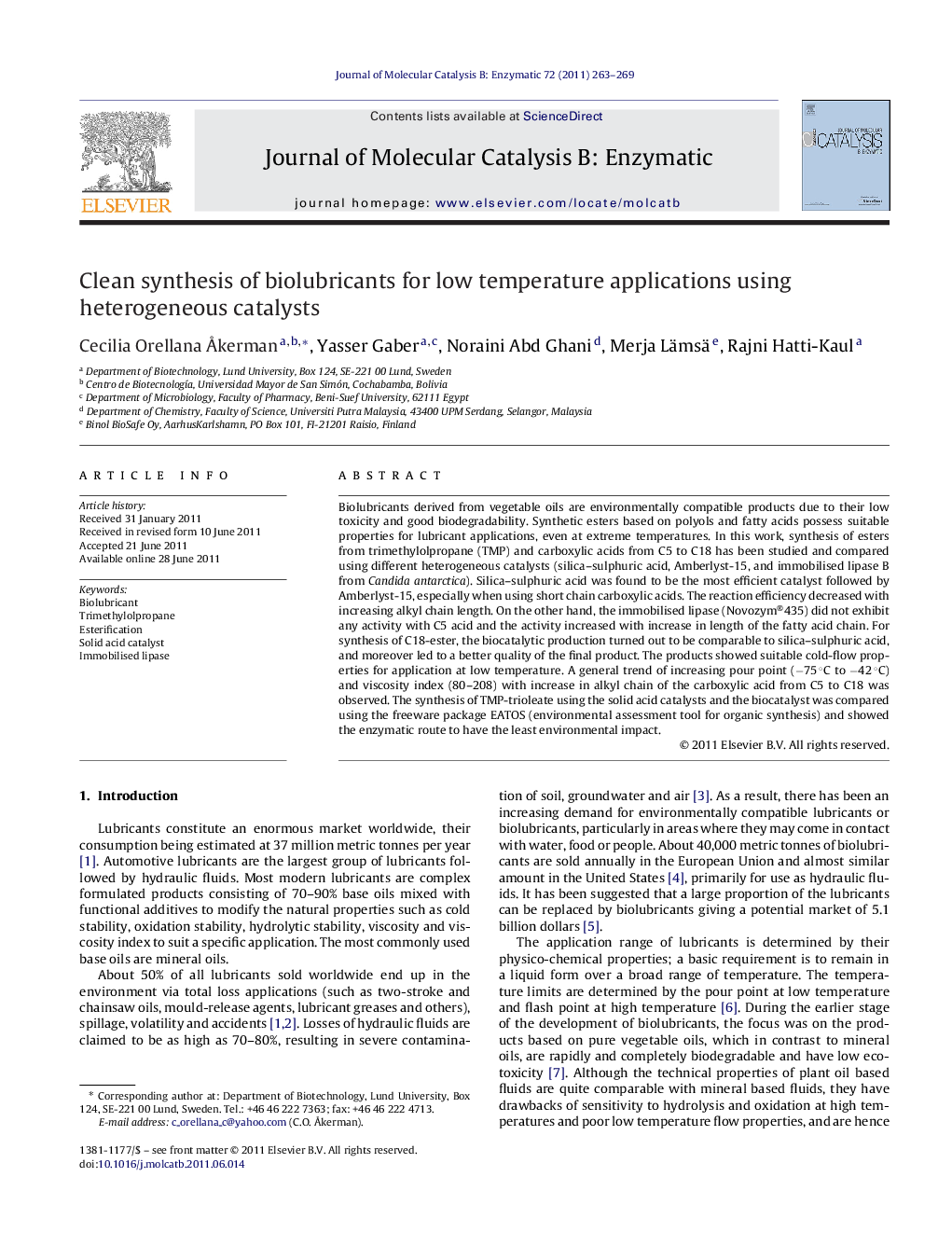| کد مقاله | کد نشریه | سال انتشار | مقاله انگلیسی | نسخه تمام متن |
|---|---|---|---|---|
| 70192 | 48814 | 2011 | 7 صفحه PDF | دانلود رایگان |

Biolubricants derived from vegetable oils are environmentally compatible products due to their low toxicity and good biodegradability. Synthetic esters based on polyols and fatty acids possess suitable properties for lubricant applications, even at extreme temperatures. In this work, synthesis of esters from trimethylolpropane (TMP) and carboxylic acids from C5 to C18 has been studied and compared using different heterogeneous catalysts (silica–sulphuric acid, Amberlyst-15, and immobilised lipase B from Candida antarctica). Silica–sulphuric acid was found to be the most efficient catalyst followed by Amberlyst-15, especially when using short chain carboxylic acids. The reaction efficiency decreased with increasing alkyl chain length. On the other hand, the immobilised lipase (Novozym®435) did not exhibit any activity with C5 acid and the activity increased with increase in length of the fatty acid chain. For synthesis of C18-ester, the biocatalytic production turned out to be comparable to silica–sulphuric acid, and moreover led to a better quality of the final product. The products showed suitable cold-flow properties for application at low temperature. A general trend of increasing pour point (−75 °C to −42 °C) and viscosity index (80–208) with increase in alkyl chain of the carboxylic acid from C5 to C18 was observed. The synthesis of TMP-trioleate using the solid acid catalysts and the biocatalyst was compared using the freeware package EATOS (environmental assessment tool for organic synthesis) and showed the enzymatic route to have the least environmental impact.
Heterogeneous acid catalysts and a biocatalyst were tested as catalysts for esterification of the polyol, trimethylolpropane with fatty acids to produce biolubricants for low temperature applications. For long chain fatty acids, the biocatalytic process was comparable to that of chemically catalysed process, and moreover provided a process with least environmental impact and better quality product.Figure optionsDownload as PowerPoint slideHighlights
► Efficient synthesis of TMP-estersunder mild conditions by heterogeneous catalysts
► Acid silica and immobilized lipase are promising catalysts for synthesis of TMP-oleate.
Journal: Journal of Molecular Catalysis B: Enzymatic - Volume 72, Issues 3–4, November 2011, Pages 263–269